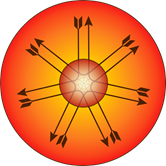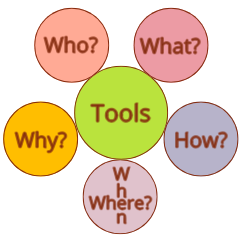Lifeworlds 1st draft
Lifeworlds 1st draft
Some thoughts
Consider the changing balance between the same-for-all world and the unique-for-each world. We can switch back and forth between the two with ease
Let's start with a story about "Life and the World." Big topic. But don't worry. We'll keep it short and simple.
Once upon a time, a long time long ago, there was the world, better the stuff we call "the world," included in with lots of other stuff, a whole universe of it.
We do not live in the world, one world the same for all. Each of us lives in a unique world, an inner and outer world that each constitutes as we form our capacities and pursue our intentions. The same-for-all world presents some peculiar problems. It's actually very difficult to find, to touch, or to run and jump in. It's an abstract world, one we construct. Over countless generations, all around that huge abstract world, humans have learned
Let's start with our own lifeworlds, those of persons in diverse 21st century circumstances possibly channeling substantial effort through A Place to Study. In addition to much else, we are constructing them to help ourselves and others who want to form themselves and learn liberally in the digital commons. We're seeking to do that pretty simply by facilitating their assembling and studying lots of cultural resources and inviting them to reflect with each other about how that furthers their purposes.
Nothing constrains us to do all that and external incentives are not motivating us to do so. We have questions to ask.
- Why should we consider these purposes [helping ourselves and others who want to form themselves and learn liberally in the digital commons] to be worthy of special attention, personally and collectively, living in the contemporary lifeworld?
- File:ToStudy.pngWho can benefit from instituting them among their sustained intentions?
- What goals, personal and collective, long and short term, should orient effort through A Place to Study?
- How can we best use our capacities and energies through A Place to Study to achieve our purposes?
- Given the press of circumstances, where and when can we actuate through A Place to Study the requisite energies to realize our intentions?
Basic considerations
Let's consider our lifeworld by exploring it, not by asking what various thinkers — say, Edmund Husserl, or Alfred Schutz, or Jürgen Habermas — might have said about the concept. We're interested in the lifeworld, not with what authorities have said about it. Let's start with a basic definition and query it, not sure what we're looking for, posing our five questions — Who? What? How? Where/When? and Why? Let's do that to institute the concept into our personal agency. Then we might read the authorities to expand our comprehension of the concept by responding thoughtfully to what they have to say.
We can get a basic definition, going high with the OED — lifeworld signifies "the sum of immediate experiences, activities, and contacts that make up the world of an individual, or of a corporate, life." Well, we say, this isn't very satisfactory. There's lots we ask of it in childish fashion, "What experiences, activities, and contacts are immediate?" the immediate . . . world?" And we might also ask in a bit more grown-up way, "What's a life, be it individual or corporate?" To the latter, we might begin by saying that the life consists in an active perceiving and effecting, and to the former, that an immediate world is one that the life actually perceives and effects.
So far, we've done pretty well unpacking our definition with our questions. We have a Who? — a life. We have a Where/When? — the world being perceived and effected. We have a How? — the way the world is perceived and effected. And we have a What? — the actual perception and effecting of the world. What we don't have is the Why?
"So let's go to it!" Can we situate more or less where we might find the "it" to which we propose to go? Is this a picky question? The phrase simply means, "Let's get going!" But even that can elicit a curious, "Where?" This too will probably seem to be a dumb or irritating question, for no location, no where seems implied by the phrase. Let's face it. Where we're going isn't all that self-evident.
When we study, we enter the lifeworld. But most of us, who have been educated to some degree, have largely lost sight about what the lifeworld constitutes, having grown accustomed to thinking about the world, pure and simple, understanding it to consist in what in principle might be knowable. With that idea, in part tacit and in part explicit, we understand getting a good education to result from our learning a sufficient, sound selection of what people currently know about the world and our place in it. But let's note something interesting about our lifeworlds: we're there thinking about what we know about the world and our place in it while our thinking all that — the world and our place in it — from within our lives
A simple recognition animates our effort. Over past centuries the world around, formal education has developed into an encompassing system of formal instruction that encompasses everyone and serves to advance and disseminate the impersonal knowledge and skills requisite in their shared activities. This statement describes neither the explicit end of the system, nor all the means employed within it. It describes basic design principle integral to its formal operations: to design a causally effective program through which persons shuffle into groupings according to various characteristics and move through staged cultural experiences to receive curricular packages and assistance in absorbing them, routed by periodic assessments of their achievements relative to set expectations. with the expectation that they will manifest, . Everyone recognizes that their cultural experience encompasses more than impersonal knowledge and skill in using it
Work out and start drafting the new section on Lifeworlds. Can we formulate a general "pedagogy" for a person's life-long institution/constitution of meaningful self-actualization through the lifeworld?
- Marx's 11th Thesis on Feuerbach: "The philosophers have only interpreted the world, in various ways; the point, however, is to change it."
- In the lifeworld, we must always be aware that neither the end nor the means determines the outcome.
- In the lifeworld we must take care to differentiate linguistically from the objective world. Agents comprise the lifeworld, not objects, not even subjects. In the lifeworld, we speak of persons and polities, acting agents, not individuals and societies, objects of impersonal knowledge.
- The problem of lifeworld terminology that has gained currency in the discourse of impersonal knowledge, for instance, to institute, from Latin instituĕre to set up, establish, found, appoint, ordain, begin, arrange, order, teach (see OED), largely has a form of action as its object, except that "teach" now primarily indicates imparting forms of knowledge.
- Character, taste, judgment, etc., as lifeworld constituents. The study of literature, history, art, music as lifework concerns, distinct from learning about them as subjects of knowledge.
- In the lifeworld, continuously forming an agenda and attending to a canon becomes very important, understanding them as ongoing efforts to adapt agency to circumstance.





